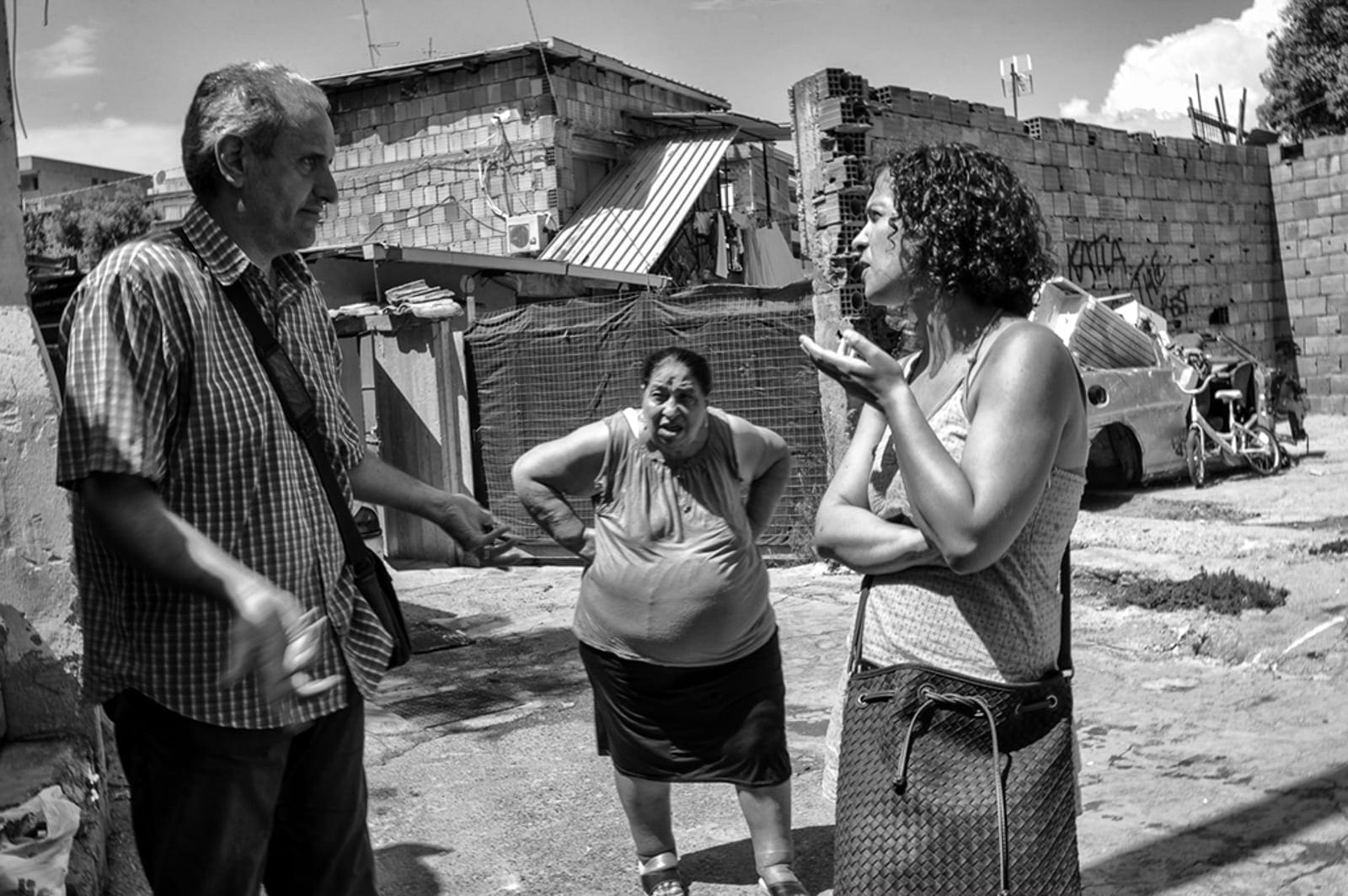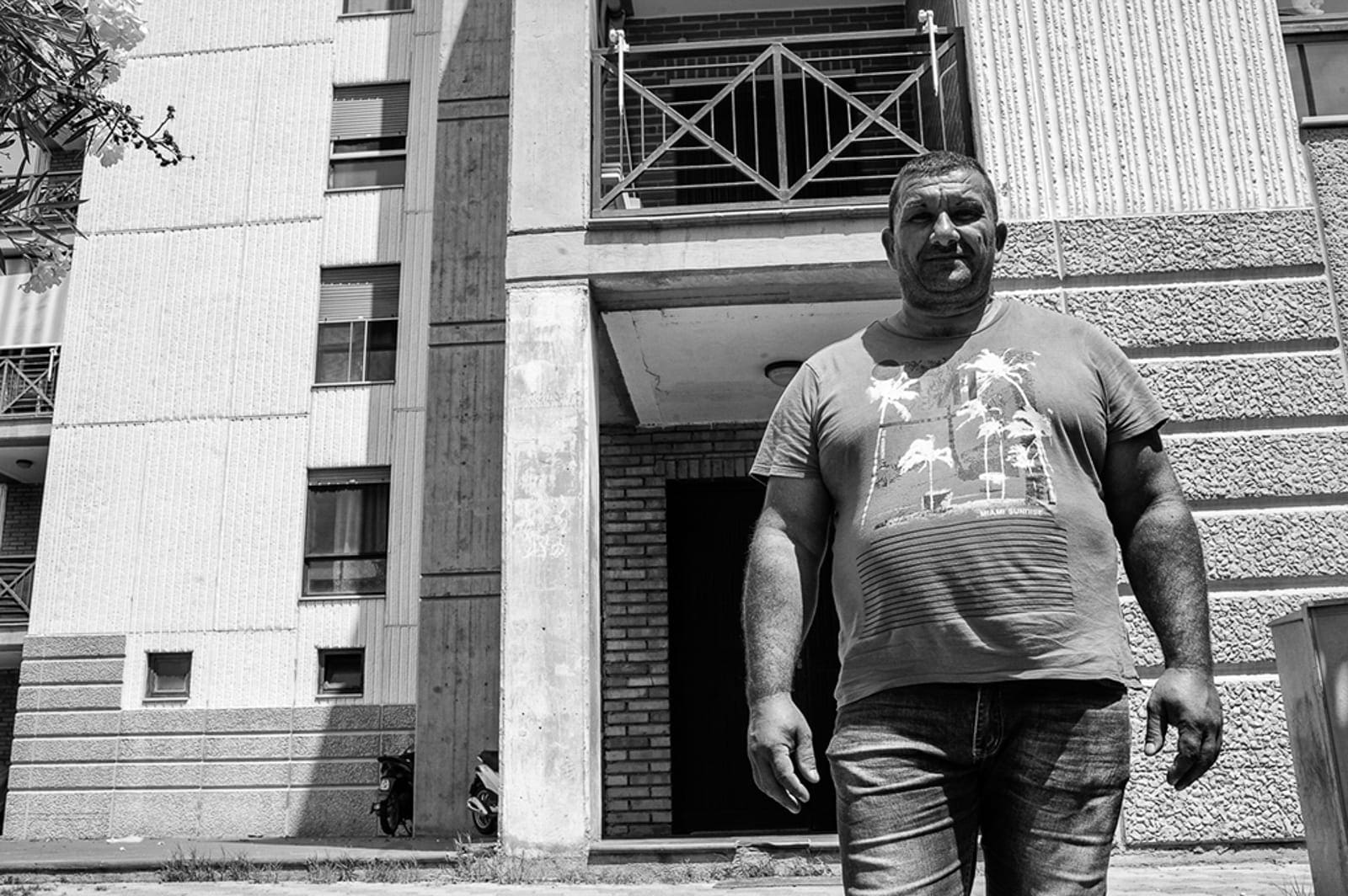Benedetto’s eyes are filled with a mixture of expectation and resignation as he greets Giacomo Marino and Cristina Delfino, representatives of the association Un Mondo Di Mondi. At the Polveriera in Reggio Calabria, a settlement ghetto of shacks in which 23 Italian Roma families live, days pass between waiting for good news, looking for a job, tending the vegetable garden, doing some odd jobs or collecting scrap iron to resell. The street on which the buildings are located should not even exist, yet the town hall is there and the residences are allocated.
Some arrived at the Polveriera, others were born there. A remote corner of South America. The same climate, the same ‘tourist sea’, crystal clear, attractive, and the same misery. While the wealthy Reggio strolls along the Corso Garibaldi, the ‘backroom’ hide situations of hardship. “The settlement”-explain Marino and Delfino-“began in 1960. As time went on, some of the families won municipal calls for public housing.
The municipality and the Territorial Housing Company proposed to them a building in the ghetto neighborhood of Arghillà, on the far northern outskirts of the city. The same location where the institutions, in the 1980s, had decided to concentrate so many of Reggio Calabria’s poor families. The vast majority of the eligible rejected the proposal because they did not intend, and do not intend, to move from one ghetto to another, claiming the right to social inclusion, demanding a housing solution in equitable dislocation realized only in part.”

In the meanwhile, the dwellings in the Polveriera collapse. “This happened a few weeks ago,” Benedetto says, pointing to the part of the bathroom rebuilt with wooden panels and the toilet suspended on three bricks, “and it’s a good thing there was no one there, otherwise people would have been killed. The wall suddenly collapsed. Now, we are waiting for the municipality to do something to make us safe, but they haven’t done anything yet.”
In the 80 metres that define the alley, the danger of collapse does not only concern the houses. The wall at the end of the short descent, belonging to an old military building, slopes conspicuously towards the alley and the barrack houses. Despite the institutions being made aware of the condition, there has been no intervention. The old building hides other pitfalls. Behind the hanging laundry are piles of debris and geologically stratified rubbish. Common elements even with the only ‘open space’ where children play and where there is a tap that serves as a shower.
There is not only the Polveriera in Reggio Calabria
“Thanks to 20 years of social battle for fair housing,” explain the volunteers of Un mondo di mondi, “today in Reggio Calabria 130 Italian Roma families out of the 325 that reside in the city live in fairly distributed council housing. 195 are still ghettoised: 23 in the ghetto slum of Polveriera, 172 in two ghettos of council housing – Arghillà nord and Ciccarello palazzine. The 130 families living in fair housing constitute 40% of the total and live in a condition of social inclusion that shows a clear and progressive improvement. The remaining 195 are in a condition of social marginalisation that gets worse every day’. Today the association Un Mondo Di Mondi continues the social battle for fair housing alongside struggling families. “In a particular way”, explains Marino, “next to the families of the Polveriera. It is doing so by demanding the legalisation of housing management for Roma nuclei. Today, the allocation of housing has become difficult because of the illegal management of housing by public institutions.

This is what happened to Loredana and Gianluca’s family. Despite having been provisionally assigned a flat in the Marconi district a few years ago, they were evicted by the municipality last year because they had been wrongly accused of occupying the accommodation without the right. Because of this mistake, they lived for months in their car, with four minor children. After a long discussion with the municipality carried out by the association, their position was clarified and the family was allowed to return to their allocated flat.
The dream of many families who are still ghettoised is to be allocated a house in a fair location. As was the case a few years ago for Rinaldo who was allocated a council flat in the new part of Rione Marconi. Today Rinaldo is proud of his housing situation and is looking for stable employment.
These people do not only suffer the snub of destitution, the refusal of even occasional work, and the ghettoisation on the margins of consumer society. They also suffer second discrimination as citizens of Roma origin and are therefore marginalised regardless, even though they have been Italian citizens for generations, and even though many of them have performed regular military service.

